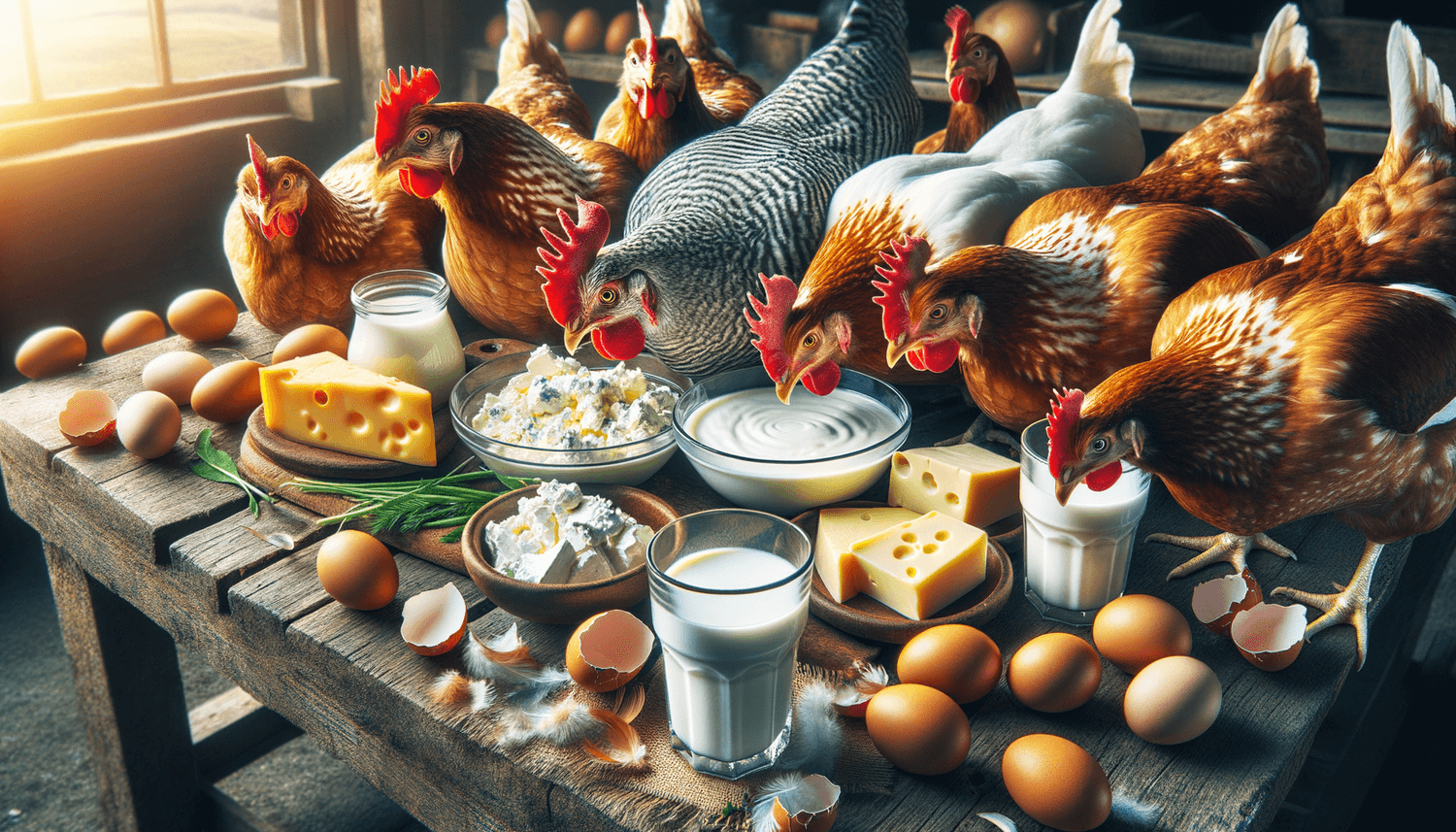Yes, chickens can eat dairy products in moderation. They are not a natural part of a chicken’s diet, however, they can be an occasional treat. Dairy products should be given in small amounts due to chickens’ limited ability to digest lactose, which is present in dairy.
Quick Summary
- Chickens can eat dairy products in small quantities.
- Limited lactose tolerance means dairy should be given as an occasional treat, not a staple.
- Some benefits may include protein and calcium intake.
- Recommended feeding guidelines include offering dairy sparingly and in small portions.
Overview of Dairy Products
Dairy products, which include milk, cheese, yogurt, and other milk-based items, are rich in nutrients such as calcium, protein, vitamins, and minerals. Typically, dairy products are consumed by humans and some domestic animals and offer a variety of dietary benefits. However, the lactose found in dairy can be difficult for many non-dairy-adapted species to digest.
Benefits and Risks of Dairy Products for Chickens
The primary benefits of feeding chickens dairy products are the protein and calcium they can provide, which are essential for egg production and bone health. However, the risks include potential digestive issues since chickens have a limited ability to digest lactose. This intolerance can lead to gastrointestinal upset.
Feeding Guidelines
When feeding chickens dairy products, offer them in small quantities such as a teaspoon per bird, and not more than once or twice a week. Ensure that the dairy is fresh and that any uneaten portions are removed promptly to avoid spoilage and attracting pests.
Alternatives
For chickens, healthier alternatives to dairy that do not pose the risk of lactose intolerance include foods like mealworms, cooked beans, or small amounts of seeds and grains. All these items provide protein and essential nutrients with less risk of digestive problems.
Expert Opinions
Poultry nutritionists and veterinarians generally advise that, while chickens can consume dairy in moderation, it’s best to do so rarely due to the potential for lactose intolerance. Preference should be given to a balanced diet specifically formulated for poultry, ensuring all necessary nutrients are adequately met.
Frequently Asked Questions
After learning about the relationship between chickens and dairy products, here are some common questions that might arise:
Can chickens have yogurt?
Chickens can have small amounts of plain, unsweetened yogurt since it typically has lower lactose content due to the fermentation process and can provide beneficial probiotics.
How much cheese can I feed my chickens?
Chickens should only have cheese occasionally and in very small amounts, such as a small cube. Cheese is high in fat and can lead to obesity if overconsumed.
Is milk safe for chickens to drink?
It’s not recommended to give chickens milk to drink. While a small amount generally won’t harm them, it can cause digestive upset due to lactose intolerance and should be avoided as a drinking option.

















